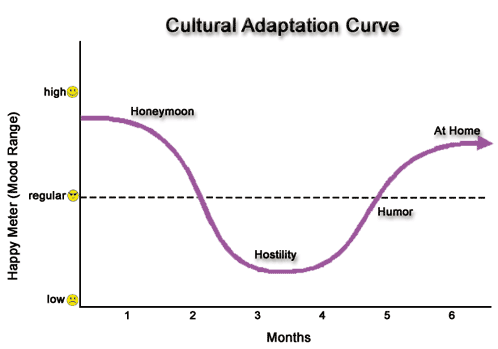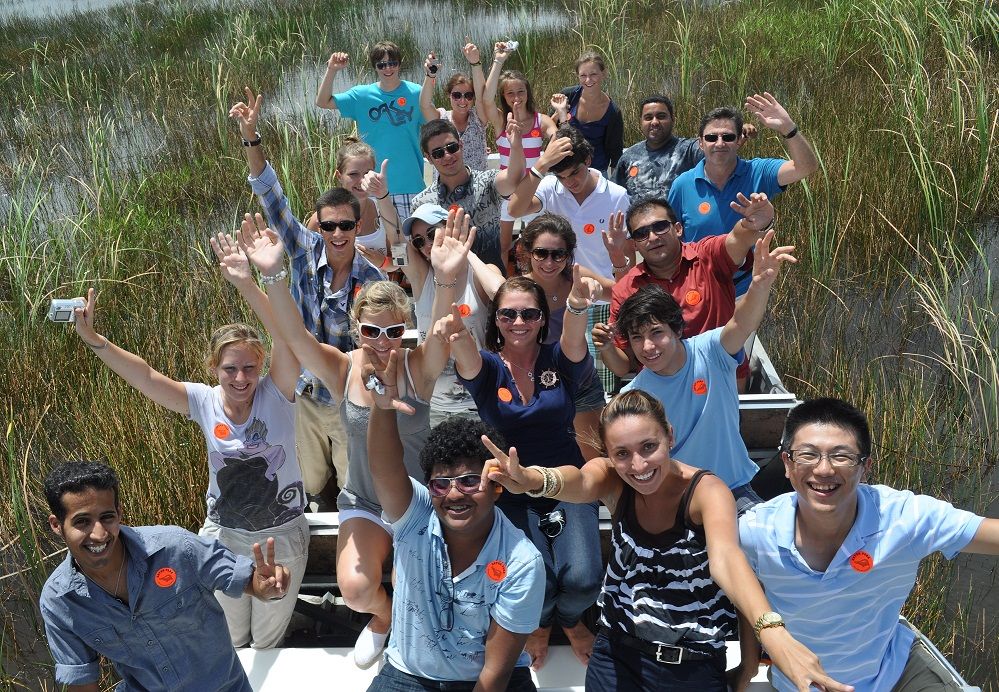Eeek! What is he doing?
That ‘eeek‘ moment. All of you who have experienced culture shock know exactly what we mean by that ‘eeek‘ moment.
 Culture shock. The bane of every student that studies abroad. Some people say that they won’t experience it, but, really, everyone does, no matter how open minded.
Culture shock. The bane of every student that studies abroad. Some people say that they won’t experience it, but, really, everyone does, no matter how open minded.
Culture Shock and those EEEK moments
I experienced culture shock in both countries I lived in for a year:
There are going to be things you don’t expect in any country you visit. From the unfamiliar products and brands in the supermarket to the way people interact with each other.
It takes about 3-6 months to fully adjust to a new culture and, still, you will have moments of “I want to go home!” or “Wait, what on earth is going on?”
What is culture shock?
Culture shock is a term to describe the anxious feeling when you enter a culture that is different than yours.
The term came about in the 1950s when people really started moving around the globe en mass. More and more students decided to study abroad, so they decided to really look into the difficulty of adjustment.
Culture shock comes in a “wave” and generally has four (4) phases:
- The Honeymoon Phase: You’re excited to be in a new country and want to learn EVERYTHING about it. You go to all the tourist attractions and have all the new and interesting food. It is completely like everything you expected. Unfortunately, nothing is really what you expected, so you move onto the next phase.
- The Negotiation Phase (Hostility): You start feeling the anxiety of living in a new country. You start running into communication problems, missing the food from your home country, you miss reading things in your own language and you miss your old friends. Here are some common feelings you may experience:
- not wanting to be around people who are different from you
- sadness
- loneliness
- anxiety
- trouble concentrating
- feeling left out or misunderstood
- developing negative and simplistic views of the new culture
- frustration
- extreme homesickness
It’s alright. Everyone gets these feelings and the will pass.
- The Adjustment Phase (Humor): Luckily, the feelings of being an outsider to pass as you become more familiar with the culture. The food, brands and communication style become the norm. You begin to adopt the style of those around you.
- The Mastery Phase (At Home): This comes with time and a lot of understanding. You will still be a person of your home country culture, but you will have adapted to the new culture and understand how to interact and move within the culture.
It is very scary to move to a new country, but you can definitely move beyond the fear and become one with your new country while maintaining your identity.
Talk with other international students and American students that have lived abroad when you arrive. This will help to understand all these feelings associated with culture shock and put those ‘eeek’ moments into perspective.
Here are some helpful websites that explore culture shock: Wikipedia, Kids’ Health, Worldwide Classroom and Stress Guide 101.






















